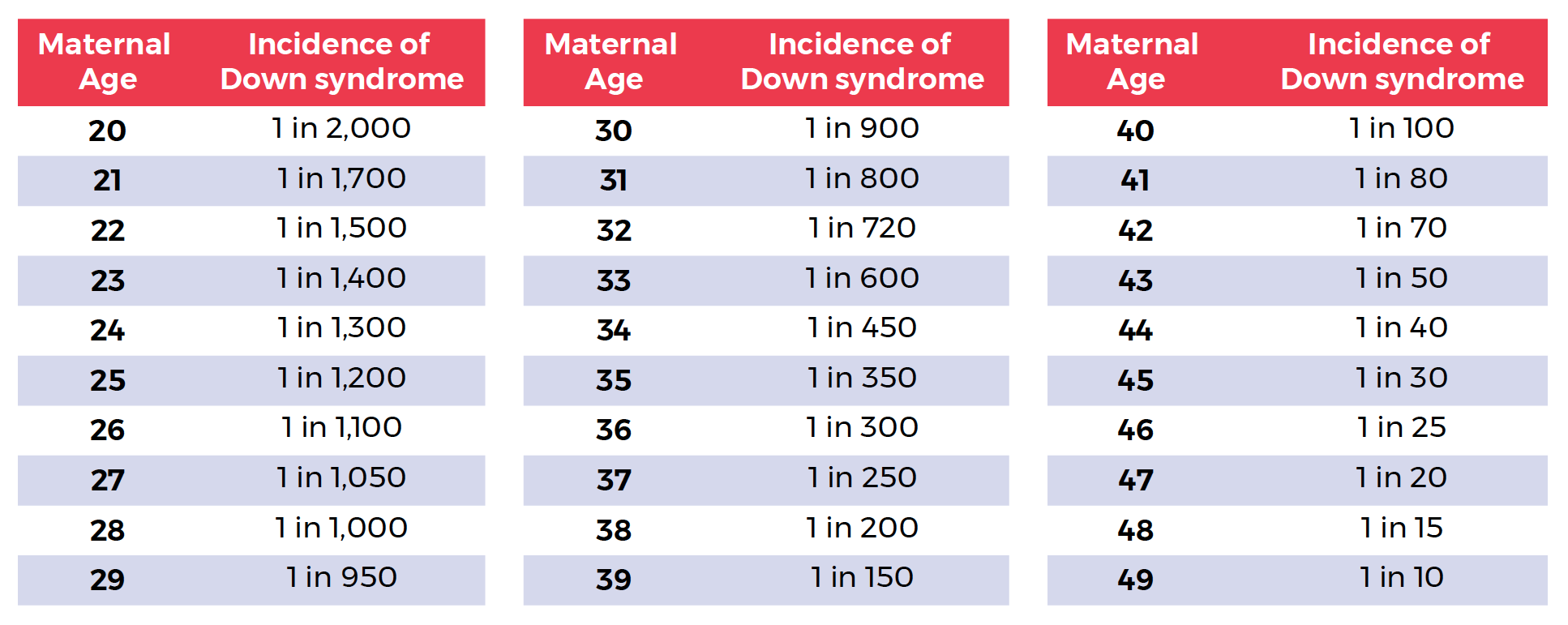Causes and Statistics
What Causes Down Syndrome?
Regardless of the type of Down syndrome a person may have, all people with Down syndrome have an extra, critical portion of chromosome 21 present in some or all of their cells. This additional genetic material alters the course of development and causes the characteristics associated with Down syndrome.
The cause of the extra full or partial chromosome is still unknown. Maternal age is the only factor that has been linked to an increased chance of having a baby with Down syndrome resulting from nondisjunction or mosaicism. However, due to higher birth rates in younger women, 80% of children with Down syndrome are born to women under 35 years of age.
Due to higher birth rates in younger women, 80% of children with Down syndrome are born to women under 35 years of age.
There is no definitive scientific research that indicates that environmental factors or parents’ activities cause Down syndrome.
The additional partial or full copy of the 21st chromosome which causes Down syndrome can originate from either the father or the mother. Approximately 5% of the cases are traceable to the father.
What is the Likelihood of Having a Child with Down Syndrome?
Down syndrome occurs in people of all races and economic levels. However, older women have an increased chance of having a child with Down syndrome. A 35 year old woman has about a one in 350 chance of conceiving a child with Down syndrome. This chance increases gradually to 1 in 100 by age 40. At age 45 the incidence becomes approximately 1 in 30. The age of the mother does not seem to be linked to the risk of translocation.
A 35 year old woman has about a one in 350 chance of conceiving a child with Down syndrome.

Since many couples postpone parenting until later in life, the incidence of Down syndrome conceptions is expected to increase. Therefore, genetic counseling for parents is becoming increasingly important. Still, many physicians are not fully informed about advising their patients about the incidences of Down syndrome, advancements in diagnosis, and the protocols for care and treatment of babies born with Down syndrome.
Does Down Syndrome Run in Families?
All 3 types of Down syndrome are genetic conditions (relating to the genes). Only 1% of all cases of Down syndrome have a hereditary component (passed from parent to child through the genes). Heredity is not a factor in trisomy 21 (nondisjunction) and mosaicism. However, in one third of cases of Down syndrome resulting from translocation there is a hereditary component. This accounts for about 1% of all cases of Down syndrome.
Only 1% of all cases of Down syndrome have a hereditary component.
The age of the mother does not seem to be linked to the risk of translocation. Most cases are sporadic — chance — events. However, in about one third of cases, one parent is a carrier of a translocated chromosome.
What Is the Likelihood of Having a Second Child with Down Syndrome?
Once a woman has given birth to a baby with trisomy 21 (nondisjunction) or translocation, her chances of having another baby with Trisomy 21 is 1 in 100 up until age 40.
The risk of recurrence of translocation is about 3% if the father is the carrier and 10-15% if the mother is the carrier. Genetic counseling can determine the origin of translocation.

